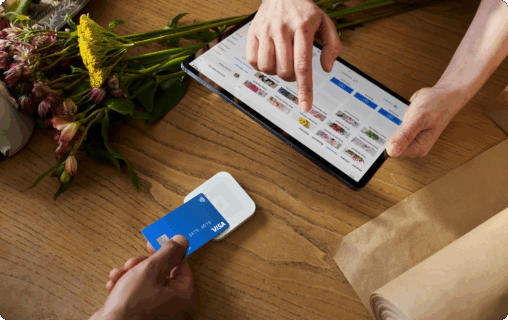A credit card can be useful for many reasons, from spreading the cost of a big purchase, earning rewards and cashback, or for building up your credit score.
There are lots of options when it comes to credit cards and the choice can be overwhelming. Would a travel credit card suit you best or do you need a 0% interest card, for example.
Credit cards are handy financial tools to have in your wallet, but only if they’re used correctly. If you make payments on time you can use them to borrow money from a credit card provider, sometimes with paying no interest.
However, if you’re not able to repay the money borrowed, you may end up paying expensive rates of interest. If you are late making a repayment you can also face additional fees and your credit score will take a hit.
Here we look at everything you need to think about when choosing your first credit card including the types of card you can choose, what you need to apply, and how to pick the best first credit card for your needs.
What is a first credit card?
If you’ve never had a credit card before, you may be wondering why you need one, and how you can use it. There are lots of options but essentially a credit card allows you to borrow money — to be used however you like — and repay it either at no or low interest.
However, while that may sound tempting, it’s also a big responsibility and to avoid extra charges or a mark on your credit score, you need to fully understand how credit cards work and what is required.
When you apply for a credit card, the lender will look at your credit score to see if you’re ablet to make repayments on time. If you’ve never had a credit card before, you may have a low or no credit score. This means you will be limited in the options available, but there are cards designed especially for you, which I’ll explain in more detail in this guide.
How does a credit card work?
Credit cards are a way of borrowing money from a credit card provider. You apply for a credit card, and if you’re approved you can then begin spending money given to you by the provider.
You will be given a set limit of money, and you will need to pay this back in monthly instalments. With most credit cards, if you can’t clear the card each month you will pay interest on the amount remaining on the card.
You can use a credit card in the same way as you use a debit card but it’s important to remember that:
- Credit cards: You are borrowing the money which will need to be paid back, often with interest applies.
- Debits cards: You are spending money from your bank account.
There are a few key things to look at when taking out a credit card including the following:
- Interest: The amount of interest you pay when taking out a credit card is shown as the APR, or annual percentage rate.
- Fees: If you miss a credit card repayment, you may be charged a fee.
- Credit limit: This is the amount you are able to borrow, but it isn't a target amount to spend.
- Minimum payment: If you clear your card each month, you won’t pay extra interest. But you can also make the minimum repayment which is the minimum amount a provider requests that you pay back. You should always try and pay more than this if you can.
- Extra benefits: Many credit cards come with perks such as cashback and rewards. These can be a great incentive, and if used correctly can allow you to be paid for using a credit card. But they shouldn't be the only thing you look at when picking a first credit card.
What protection is available with a credit card?
A major advantage of using a credit card is the protection available, which comes under Section 75 of the Consumer Credit Act.
It means if you use a credit card to buy something worth between £1 and £30,000 and the seller goes bust, you can claim the money back through your credit card provider. This is a higher level of protection than if you use a debit card, as the credit card provider becomes jointly liable for any outstanding money in these situations.
What are the different types of first credit card?
There are lots of credit cards to choose from, but if it’s your first credit card you may be more limited in your options.
Here I’ve listed some of the most common:
- Credit-builder card: If you don’t have a credit history, because you’ve not had a credit card before, a credit builder card can help you to grow your score. These cards are aimed at people with no credit history, or those with a poor credit score, and they usually have low credit limits.
- Student credit card: If you’re at university a student credit card can be a good option for emergency spending and often include perks such as free travel cards.
- Rewards card: Rewards cards let you earn rewards when you use them. The types of rewards vary widely, from points to use on your supermarket shopping to points to exchange for travel discounts.
- Cashback card: If you have a cashback credit card, you earn a small amount of cashback every time you use the card. These cards usually have a limit on the amount of cashback you can earn.
- 0% purchase card: If you have a big expense coming up such as a new kitchen or car, if you use a 0% purchase card you won’t pay interest on the card for a set period of time. This lets you spread the cost of the item but if you haven’t cleared the card by the time the 0% period ends, you will pay interest on anything remaining.
There are also 0% balance transfer cards available, although these are for people with an outstanding credit card balance. They allow you to transfer the balance, for a fee, to a card which charges no interest for a limited period.
The pros and cons of a credit card
Before you apply for your first credit card, it’s worth reminding yourself of the pros and cons of using one:
Pros:
✔️ A good way to build your credit score, if used properly.
✔️ You can earn rewards such as flights or cashback.
✔️ Allows you to spread the cost of a big purchase over a set period of time.
✔️ You have protection if the seller goes into administration.
Cons:
❌️ It can be tempting to spend more than you can repay.
❌️ You’ll be charged for late payments.
❌️ Your credit score can be damaged if you don’t make payments on time.
❌️ If you use too much of your available credit, this can lead to a poor credit score.
How to apply for your first credit card
You can apply for most credit cards online, through a banking app, or sometimes in person at a bank branch.
To apply for your first credit card you will need to meet the following criteria too:
- Be at least 18-years old
- Live in the UK
- Earn a minimum amount of money each month
- Be employed, or self-employed
When you apply for your first credit card you will usually need to provide the following information:
- Your full name and address (and your address for at least the last three years)
- Date of birth
- Your job, the address of your employer, and your salary
- Proof of identity (usually a UK passport or driving licence)
You can fill in an application online for most credit cards, and you should find out within minutes if you are approved or not. However, these applications are known as ‘hard’ credit searches and they will show up on your credit file, even if you’re not accepted for the card. This is why using a free eligibility checker first is a good idea.
If you use an eligibility checker, you can find out how likely you are to be accepted for a new card but only a ‘soft’ credit search is made which does not stay on your credit score.
Can a credit card boost my credit score?
Using a credit card correctly and repaying the amount you owe on time can boost your credit score.
That’s because if managed properly, using a credit card can be a way of showing how you can borrow money and repay it. This can be handy as the better your credit score, the better your chances of being accepted for credit. The best deals and cheapest interest rates are also reserved for people with good credit scores.
There are a few other ways you can boost your credit score too, such as with the following tips:
- Join the electoral roll: If you sign up for the free electoral roll you’ll be able to vote in UK elections but it’ll also help your credit score as credit reference agencies and other companies check it to make sure you are who you say you are and to reduce fraud.
- Pay bills on time: Make sure you’re repaying any bills you owe, such as for a phone contract or your energy bills, on time.
- Open a bank account: Having a bank account will show lenders you are earning a regular income and have the money available to repay credit.
- Check your credit score: Everyone has a credit score and you can check it for free via the main credit reference agencies — Experian, Equifax, and TransUnion. Checking your score regularly is a good habit to get into as you’ll then be able to spot if there are any mistakes on it, or if credit has been applied for or taken out without your knowledge.
Related Guides:




